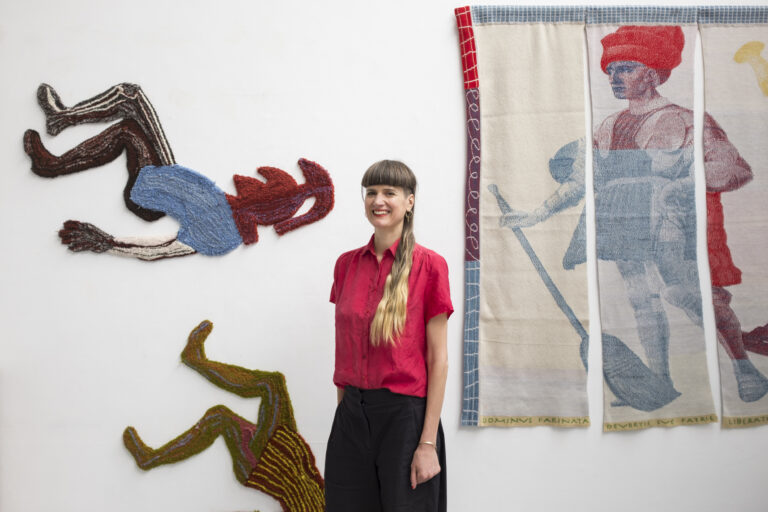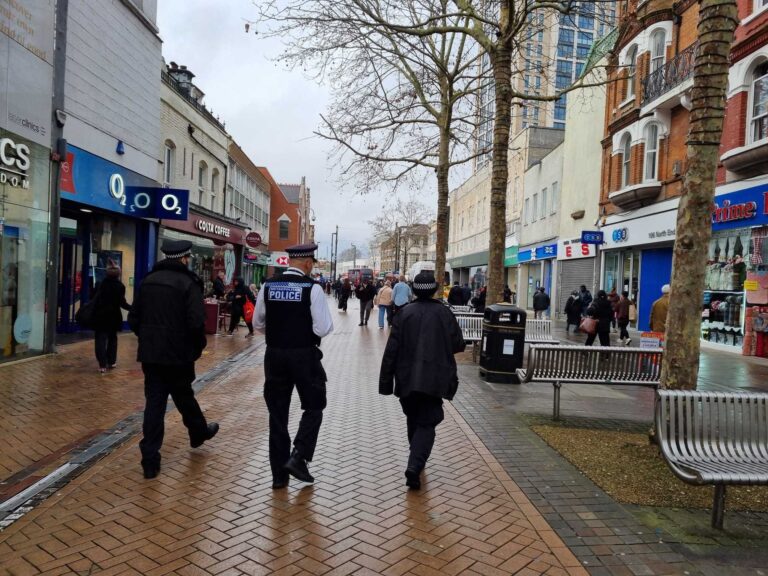For many children at school, giving their teachers feedback on how they’re doing and suggestions for improvement would be a quick way to earn them a detention – not at St Barnabas and St Philip’s.
The Church of England primary school in Kensington has its own School Parliament where pupils, who are elected by their peers, give feedback to teachers as part of a democratic dialogue.
The West London school has gone from ‘Requires Improvement’ to being ranked ‘Good with Outstanding features’ by Ofsted in just two-and-a-half years. A key part of that turnaround has been dialogue between students and staff, creating an environment where pupils are not only comfortable vocalising when things are going well or when they are struggling, but also saying when the teachers could sharpen things up.

Head teacher Rebecca Timms, 35, joined the school in September 2022, almost a year after Ofsted inspectors found students losing focus in class and teachers struggling to provide clear instructions. She told the Local Democracy Reporting Service (LDRS): “When I came to view the school, I knew I could make a difference and to me, that’s very important. We’re in education because we can make a difference to the children.”
Officials who visited St Barnabas and St Philip’s in May this year said students were proud of their school and talked positively about recent adjustments, which have included ‘significant changes’ to leadership and staff. Inspectors said pupils felt listened to and relished opportunities to contribute to decisions at the Earls Court Road school.
They wrote: “Because of this, they demonstrate both maturity and a full commitment to school life. Pupils readily take on the wide range of responsibilities available, including roles in the School Parliament as eco-warriors and play monitors.”

For Miss Timms, a self-confessed book lover, reading was always going to form a key part of the school’s transformation. With the input of staff and students, she made sure each classroom has a copy of the ‘top 100 reads of the year’.
She said: “For me as an educator, when children can read, they can access the rest of the world. And if they enjoy reading, it opens doors and windows and opens up their world to them and it’s important. That’s essentially what we did. We looked at the texts and taught quality literature in reading and English.”
Pupils are encouraged to write poems and share their experiences with teachers. She said: “If you see the children around here, they’ll come and talk to you and tell you what’s going well. I’ve had children recommend books to me that they think is the next best book to read as they go into, say, Year 3.
“They’ll say ‘I’ve read this book at home and it’s really good’. I’ll then go off and read it and see if it’s going to be the next book. So, they’re passionate about reading.”
Miss Timms’ office is filled with books of inspirational figures, which students can walk in and take when she’s around. The library is also packed with books while hallways are decked out in art and signage. The LDRS also saw sculptures made by Year 1 students of figures sitting on a chair.
And it’s not just reading which has changed. Under deputy head teacher Richard Downs, 38, pupils’ maths skills have improved, according to the latest Ofsted report. He credits the improvement on teaching math concepts for a longer period of time and showing pupils how they can use it in everyday life.
He said: “Once you understand those core concepts, the rest of the concepts come more naturally to the children because they almost have less barriers, if you like. If they know addition, subtraction and multiplication, when you’re looking at shapes, area and perimeter, for example, where you’re doing multiplication, the barrier for [understanding] it is not there.”
Miss Timms said a lot of the staff present during the 2021 inspection had since left and didn’t blame them for the school’s poor ranking, pointing out they were in interim positions and couldn’t affect the change she has been able to bring.
One of those changes is that there are now regular trips to London’s landmarks. Dubbed ‘cultural capital’, students have visited Westminster Abbey to re-enact King Charles’ Coronation and sung at The Royal Albert Hall. They’ve learned about animals by visiting London Zoo and the Sea Life aquarium.
For sport, kids have gone kayaking in Ladbroke Grove. Trips are mostly free but can sometimes set parents back £6-7. The school has invested in new play equipment which includes a new wooden climbing set, costumes for role play, and a mud kitchen where kids can pretend to cook. Chelsea Football Foundation come every week and work with school partners on improving playtime for students.

Jake, who is in Year 6, said changes to the school have made it better. The 11-year-old said: “There are a variety of topics in lessons. Some are active and some are more writing and reading. There is more to do.”
Fellow classmate Simona, 11, agreed. She said: “Before you couldn’t talk to partners and other groups but now we can talk to them and get their opinions.”
Pupils are also encouraged to explore their limits. Miss Timms explained: “We’re there to support and realise when it might be dangerous to play but the children are very good at, if they’re going to climb a tree, how high they can go before they fall. So, we allow that freedom to play, with supervision.”
However, the biggest changes have come from leadership. Miss Timms said senior staff lead by example, which she believes has rubbed off on staff and students. She said: “The big message from us is consistency and ensuring all adults are acting in the same way and working from the policies and structures.
“We make sure the kids know the routines and the system and the structures that we have. They know the expectations of the class teachers; they know what we expect and it’s intrinsic in them… [and] that’s what we’ve tried to do over the last two years: explain that you don’t need to behave for me, you need to behave for you.”
Miss Timms said the school had also taken on board recent criticism by Ofsted to better embed the curriculum. Mr Downs said kids are taught topics over multiple subjects to ensure the knowledge sticks and pointed to how Ancient Egypt is explored in both history and art classes.
St Barnabas and St Philip’s was handed an overall rating of ‘Good’ by Ofsted inspectors during a visit on May 1. It received an ‘Outstanding’ ranking in the areas of behaviour and attitudes, personal development, and leadership and management. It received a ‘Good’ rating for early years provision and quality of education.






